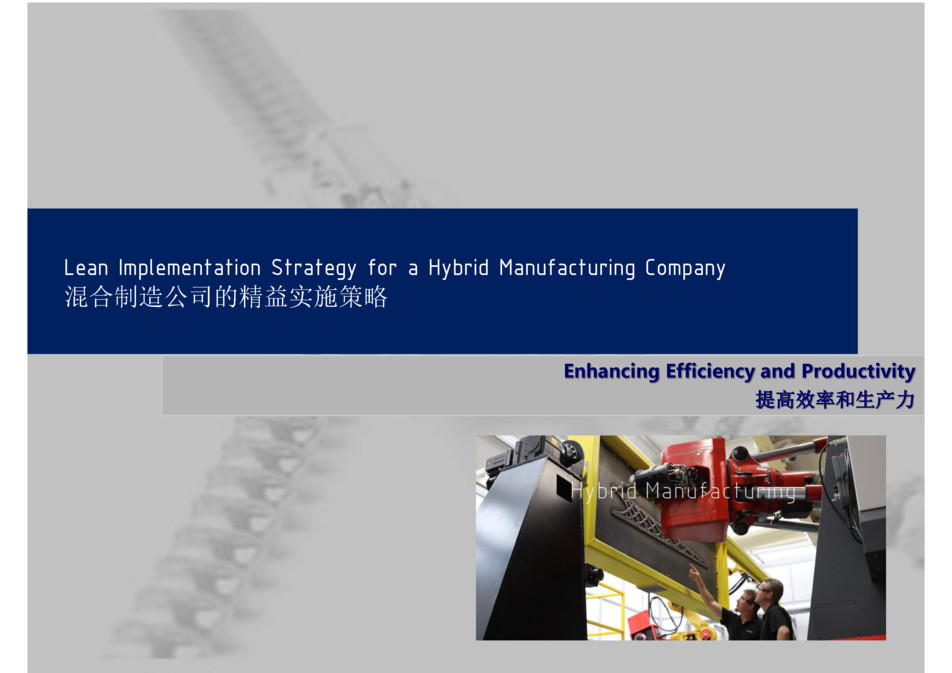hybrid Manufacturing Strategy
hybrid Manufacturing Strategy
Hybrid Manufacturing Strategy: Lean Implementation Strategy for a Hybrid Manufacturing Company
Overview of Lean Management
In the world of manufacturing, Lean Management is all about maximizing customer value while minimizing waste. The ultimate goal is to create more value for customers while utilizing fewer resources. This approach emphasizes efficiency and effectiveness in every aspect of the manufacturing process.
Source: Page 2
Assessment and Planning
Before implementing Lean strategies, it is crucial to conduct a thorough assessment of the current state of processes, technologies, and organizational culture. This analysis helps in identifying areas of waste through data-driven insights. Setting clear and measurable objectives, engaging stakeholders, and involving all levels of the organization are key steps in the planning phase.
Source: Page 3
Establish Lean Principles and Culture
Building a culture of Lean within a manufacturing company involves educating and training employees on Lean principles and methodologies. Encouraging continuous improvement through practices like Kaizen, where employees are empowered to suggest improvements, is essential. Recognizing and celebrating successes play a vital role in fostering a culture of continuous improvement.
Source: Page 4
Implement Lean Tools and Techniques
Value Stream Mapping (VSM) helps visualize workflows and identify inefficiencies in the production process. Just-In-Time (JIT) production aligns manufacturing with customer demand, reducing waste and improving efficiency. The 5S methodology and Flexible Manufacturing Systems (FMS) are additional tools that can enhance productivity and streamline operations.
Source: Page 5
Technology Integration
Incorporating robotics and automation into manufacturing processes can streamline operations and improve precision. Implementing cloud-based systems with data analytics tools enables real-time monitoring of performance metrics, facilitating informed decision-making and enhancing overall efficiency.
Source: Page 6

